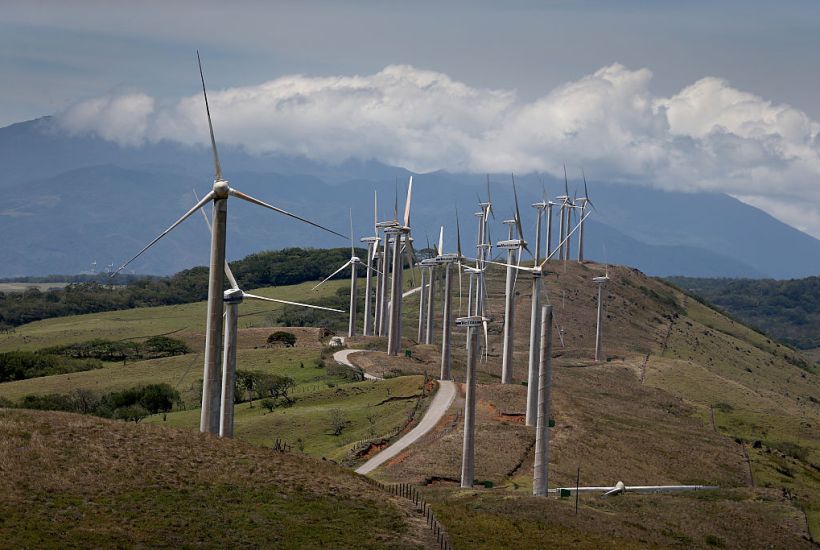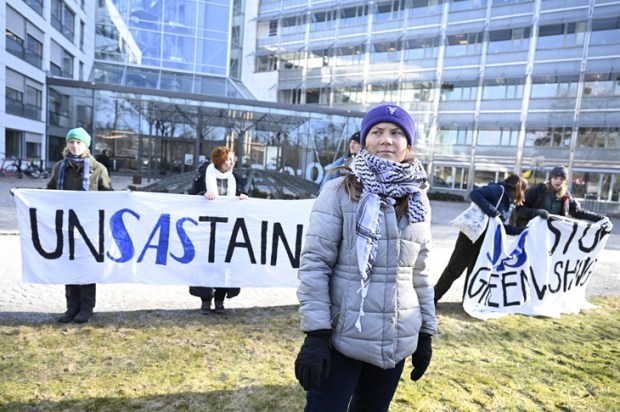How will you be able to look your grandchildren in the eye and tell them you didn’t do anything about climate change?’ If you’ve engaged in any kind of climate change or energy policy debate, you will have no doubt heard this question asked. The point, of course, being that the only moral course of action is to reduce our use of fossil fuels drastically by switching to renewable energy post-haste. If you disagree with this outlook you are a ‘denier’, ‘dinosaur’ or a fossil fuel shill. The reality though is that forcing us onto unreliable renewable energy sources before they are viable is expensive, destructive and morally bereft.
Apart from financing climate change initiatives globally, Australia has committed to the RET which aims for 23.5 per cent of our national energy production to be renewable by 2020 and represents a doubling of our current levels of renewable energy production. Bill Shorten’s Labor has announced a policy to up this target to 50 per cent by 2030 without any explanation of how this target will be achieved, how much it will cost or what level of energy security it represents. It has been estimated that in 2016 renewable subsidies, including state schemes, were close to $5 billion dollars with renewables providing only 14 per cent of total energy production. How much would they amount to per year in a 50 per cent renewables market?
If we were somehow able to make the 50 per cent RET by 2030, what will we have achieved? Seeing as Australian CO2 emissions make up only 1.4 per cent of total CO2 emissions globally probably not very much. Even the Garnaut Report concedes that any attempts within Australia to mitigate future global warming will have zero impact. The most that can possibly be achieved by climate action in Australia is that we are acting in solidarity with other developed nations and perhaps leading by example. Seeing as the developing world are exempt from reducing their emissions for another 15 years, then even that influence won’t amount to much more than very costly virtue signalling that has no effect on the temperature.
When faced with this logic people will often say that we should be using switching to renewables now anyway so that we will be prepared for when fossil fuels run out. Fossil fuels are decades away from running out and today’s renewable energy technology will likely bear no resemblance to energy technology at the end of this century. By all means, let’s continue to fund energy innovation and as the technology improves and becomes economically viable, including perhaps some form of advanced nuclear technology, we will see people naturally turning to it as an alternative to fossil fuel energy. Unrealistic renewable energy targets that are forced on us now, only result in more expensive and less reliable energy production.
When debating energy policy, it’s helpful to realise that arguments for and against emissions reductions measures like the RET are based on two different moral philosophies. Some have an environment-centric moral framework that prioritises a pristine environment as the ultimate goal. Within this framework, human impact on the environment is seen to be detrimental and must be minimised. Others prioritise human flourishing over a pristine environment. Within this framework, human flourishing and well-being are the goals and in order to achieve this, the environment is modified and improved.
Of course, human well-being is dependant on a healthy, functioning natural environment so if human well-being is your ultimate goal then well-managed forests and fisheries, for example, are a priority. The difference though is that this moral framework makes room for modifying the environment to provide us with resources and energy and prioritises prosperity and growth as a means of ensuring that human beings lead long and fulfilling lives. It also recognises that wealthy countries treat the environment better than poorer undeveloped countries and are better equipped to deal with climate catastrophes.
If our moral framework is based on human flourishing, then it’s obvious that policies that reduce energy cost and promote prosperity are of most benefit to humanity. If your moral framework elevates a pristine environment over human flourishing then you will support policies that reduce human impact on the environment by making energy more expensive, increasing poverty and reducing our capability to adapt to and survive climate catastrophes.
We owe it to future generations to make the most of our natural resources like coal and gas to produce low-cost energy and quit wasting billions of dollars chasing futile renewable energy targets that drive up energy costs, slow down progress and ultimately slow down the generation of new ideas.
The irony, of course, is that poorer we are, the less able we are to protect the environment and less equipped we will be to withstand climate-related catastrophes. We will spend more time surviving and less time researching and innovating.
If that is your preferred outcome then I hope you are willing to look your grandchildren in the eye when they ask you why you supported policies that reduced their wealth and their ability to withstand and adapt to a changing climate, in the name of patting yourself on the back for ‘doing something’ while achieving no change in the temperature whatsoever.
Nicola Wright is a writer at LibertyWorks Inc.
Got something to add? Join the discussion and comment below.
Got something to add? Join the discussion and comment below.
Get 10 issues for just $10
Subscribe to The Spectator Australia today for the next 10 magazine issues, plus full online access, for just $10.


























Comments
Don't miss out
Join the conversation with other Spectator Australia readers. Subscribe to leave a comment.
SUBSCRIBEAlready a subscriber? Log in